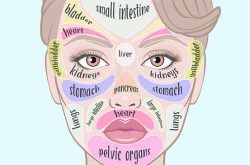In common language usage, “fruit” normally means the fleshy seed-associated structures of a plant that are sweet or sour, and edible in the raw state, such as apples, bananas, grapes, lemons, oranges, and strawberries.
What is Best Time to Eat Fruits – Before or After Meals?
Will you get diabetes if you indulge your sweet tooth? Can fruit rot in the stomach if eaten after a meal? Are all fish fat good for you?
Dr Shanker Pasupathy, Visiting Consultant, Department of Upper GI & Bariatric Surgery, Singapore General Hospital (SGH), a member of the SingHealth group, answers these and other food- and mealtime-related questions, debunking popular nutrition myths and presenting the facts.
Common nutrition myths
Myth 1: Fruit should be eaten on an empty stomach, if it is eaten with other foods it can cause fermentation and rot in the stomach, affecting digestion
Fact: Fruit can be eaten at any time and it can be eaten along with other foods. The body produces digestive enzymes for protein, fat, and carbohydrates which help it digest mixed meals. Besides, since the stomach has a high concentration of hydrochloric acid, bacteria is killed before it is able to reproduce so fermentation cannot take place in the stomach.
Myth 2: You will get diabetes if you indulge your sweet tooth
Fact: If you don’t have diabetes you don’t have to worry about treating yourself to your favourite chocolate cake and ice cream now and then. Sugar won’t directly cause diabetes but consuming excess “empty” calories from these goodies can lead to obesity, an important risk factor for diabetes.
Myth 3: All the fat in fish is good fat
Fact: Only about 30 per cent of the fat in fish is “good” omega-3 fat (exact percentage varies depending on the type of fish). The rest of the fat in fish is a mixture of “bad” fat which raises your cholesterol, and fat which has no special health benefit and just adds to your calorie consumption. Tuna, for instance, has 23 per cent “good” fat and 33 per cent “bad” fat while salmon has 27 per cent “good” fat and 16 per cent “bad” fat.
Myth 4: Sweet cravings are due to a deficiency in your body
Fact: You crave sweet foods, particularly when you are under stress, because these foods trigger the release of mood-enhancing compounds in the brain.
Myth 5: A glass of wine every day is good for health
Fact: Alcohol disrupts folic acid, a B-vitamin with anti-cancer properties, which puts women who drink every day at a higher risk for breast cancer, compared with women who avoid alcohol altogether. Daily alcohol intake can also be damaging to the liver. However wine — especially red wine — contains antioxidant polyphenols which have beneficial effects against atherosclerosis (cardiovascular disease) and cancer. For non-drinkers, polyphenols are also found in dark chocolate, tea, pomegranates and blueberries.

Eating Fruit Can Help You Lose Weight?
Here’s some good news if you love berries, pears, and apples: Ditching fruit isn’t necessary to lose weight. It’s also not smart. Yes, fruit contains carbs and naturally-occurring sugar. But there are important reasons to make fruit a daily staple in your diet, even when you’re working to slim down. The key is to eat it strategically. Doing so can actually help you shed pounds.
Natural substances in fruit—including vitamins, minerals, antioxidants, fiber, and prebiotics—are incredibly good for you, not just in terms of protecting against chronic diseases, but also for managing your weight. Even if you eat plenty of veggies, nixing fruit means missing out on the unique antioxidants they provide.
In research, fruit has actually been tied to weight loss, not weight gain. One study found that overweight and obese adults who ate more fruit experienced greater weight loss than those who didn’t. Another study, which followed more than 130,000 adults over 24 years, found that consuming fruit was associated with improved weight loss over time.
This link may be because fruit can help boost satiety, satisfy a sweet craving, and decrease your desire to dig into goodies like candy or baked goods. Fruits also tend to replace higher-calorie treats, whereas veggies tend to be add-ons. In other words, you’re much more likely to choose an apple rather than a piece of broccoli in place of a cookie; and that swap can help you limit total calories and avoid added sugar, the real culprit when it comes to weight gain.
As for sugar, even the strictest guidelines from groups like the American Heart Association and World Health Organization don’t lump the sugar from fresh, whole fruit in with added sugar, the refined type used to sweeten foods (think almond milk, or the spoonful you add to your morning coffee).
That’s because the naturally-occurring sugar in fruit is much less concentrated, and bundled with water and a number of key nutrients. For example, one whole orange provides about 17 grams of carb, about 12 of which are natural sugar. But it also supplies fluid, 12% of your daily fiber needs, and nearly 100% the recommended amount of vitamin C, along with B vitamins, potassium, and substances like hesperidin, which has been shown to help lower blood pressure, cholesterol, and inflammation.
Compare that to one tablespoon of table sugar, which contains 16 grams of carbs and no nutrients. Essentially, whole, fresh fruit and added sugar don’t belong in the same category.
Of course, that doesn’t mean you can eat unlimited amounts of fruit. Fruit does contain carbohydrates, and the job of carbs is to fuel the activity of your cells. When you eat more carbs than you can burn after a meal or snack, even from fruit, the unneeded surplus can either feed existing fat, or plump up fat cells.
For this reason your total carb intake, including fruit, should correspond to your fuel demands, which are based on your height, ideal weight, sex, age, and physical activity level. Most of my women clients can afford to eat two servings of fruit per day (more if they are taller or more active), with one serving being one cup, or one piece about the size of a baseball.
Since the carbs in fruit help fuel activity, when you eat fruit matters too. Downing a huge bowl of grapes late at night while you’re watching TV or surfing the web (when your fuel requirement is low) doesn’t make a lot of sense. Instead, build fruit into the meals and snacks you consume before your more active hours of the day. For many of my clients that may mean eating a small banana 20 or 30 minutes before a workout, or eating berries with breakfast before heading to work—and pairing an apple with almond butter in the afternoon to help power through the rest of the day.
As far as the type of fruit you choose, try to get a good variety to expose your body to the broadest spectrum of nutrients and antioxidants. In my opinion no fruit is off limits if you’re thoughtful about the amount and timing. For example, while watermelon is a high glycemic-index fruit, enjoying it when it’s in season is smart, since one cup of cubes contains less than 50 calories, and it provides vitamin C, potassium, and antioxidants tied to anti-inflammation, protection against heart disease, and improved exercise endurance and recovery.
Bottom line: fruit is incredibly nutritious and not inherently fattening. Its impact on your weight depends on when you consume it, and how much you eat. Banishing fruit completely can backfire for weight loss, and negatively impact your overall wellness. Instead, strike the right balance to reap all the benefits of fruit and still achieve your slim-down goals.
Sources: Healthxchange , Health , Wikipedia

